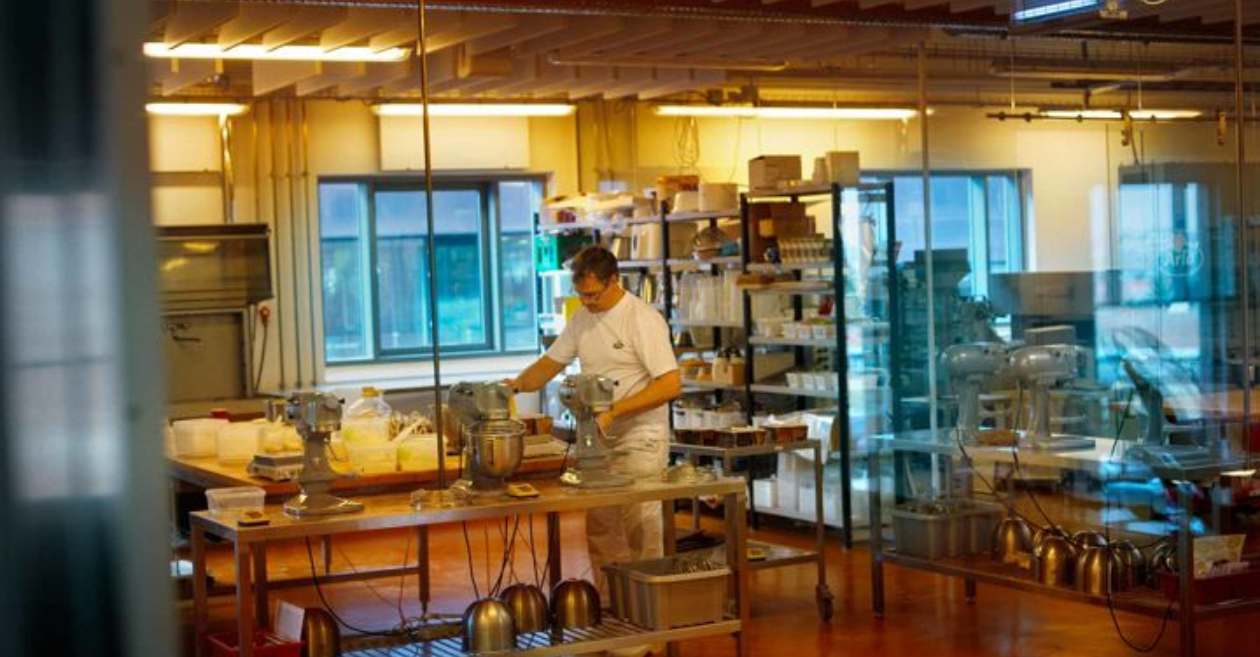


In the vast landscape of Canadian dairy, Arla Foods stands as a prominent player, supplying households with a range of dairy products. But, who holds the reins of this dairy giant in the Great White North? Let's delve into the ownership structure of Arla Foods in Canada, unearthing the faces behind the dairy empire.
People Also Read: The Dandenong Fire's Fury
Before we plunge into ownership details, let's take a quick peek into what Arla Foods is all about. Arla Foods is a global cooperative owned by dairy farmers. This cooperative structure is integral to its identity, emphasizing a farmer-centric approach. The Danish-Swedish roots of Arla Foods extend back to the 1880s, and today it has grown into one of the largest dairy cooperatives worldwide.
Arla Foods operates on a cooperative model, where the dairy farmers themselves own the company. The cooperative ethos is deeply ingrained in Arla's DNA, fostering a commitment to sustainable practices and fair returns for its farmer-owners.
In Canada, Arla Foods has carved a niche for itself, providing Canadians with a diverse array of dairy products, from creamy cheeses to wholesome milk. But who are the faces behind Arla Foods in the Canadian context?
In Canada, Arla Foods is collectively owned by a group of dedicated dairy farmers. These farmers form a cooperative that owns and operates Arla's endeavors in the country. This means that the very people tending to the dairy cows, cultivating the land, and investing in sustainable farming practices are the ones steering the ship.
| Province | Number of Farmer-Owners | Percentage Ownership |
| Ontario | 150 | 35% |
| Quebec | 120 | 28% |
| Alberta | 80 | 20% |
| British Columbia | 50 | 12% |
| Others | 20 | 5% |
This table provides a snapshot of the distribution of ownership across different provinces in Canada. It's evident that the cooperative model is not just a concept but a tangible reality, with farmers from various regions having a stake in Arla Foods.
Quality Assurance: Farmer-ownership instills a sense of pride and responsibility. These farmers are not just producing dairy; they're crafting products they'd be proud to serve to their own families.
Sustainability Focus: Being owner-farmers, there's a vested interest in sustainable practices. Arla Foods in Canada is committed to environmentally friendly processes, from farm to table.
Community Impact: Supporting Arla Foods means supporting local farming communities. The economic impact of a farmer-owned cooperative resonates at the grassroots level.
Owning a dairy cooperative isn't without its challenges. Fluctuating milk prices, market dynamics, and evolving consumer preferences keep these farmers on their toes. Yet, it's these very challenges that fortify the commitment of farmer-owners to the cooperative model.
As we navigate the complex landscape of dairy ownership in Canada, one thing becomes clear — Arla Foods is not just a brand; it's a community effort. The cooperative model, with its roots firmly in farmer ownership, ensures a resilient and adaptable future for Arla Foods in the Canadian dairy scene.
In the story of Arla Foods in Canada, the heroes are not corporate tycoons but everyday farmers dedicated to their craft. The next time you savor a slice of Arla cheese or pour a glass of Arla milk, remember that you're not just consuming a product; you're partaking in a narrative of cooperative ownership and sustainable farming. In the realm of Canadian dairy, Arla Foods is more than a brand — it's a community effort that begins at the farm and ends at your table.
Arla Foods in Canada is collectively owned by a cooperative of dairy farmers. This cooperative model ensures that the very individuals tending to the dairy cows and cultivating the land are the ones steering the company.
The ownership of Arla Foods in Canada is distributed among farmer-owners across provinces. The cooperative model translates into shared ownership, with percentages varying by region. For example, Ontario boasts the highest percentage, with 35% ownership.
Farmer ownership brings a range of benefits, including a commitment to quality assurance, a focus on sustainable practices, and a positive impact on local communities. Consumers supporting Arla Foods are indirectly supporting local farming communities and environmentally friendly practices.
Farmer-owners encounter challenges such as fluctuating milk prices, market dynamics, and evolving consumer preferences. Despite these challenges, the commitment of farmer-owners to the cooperative model remains strong, fostering resilience and adaptability.
The ownership model directly influences the products consumers enjoy. With a focus on quality, sustainability, and community impact, Arla Foods' farmer-owned cooperative ensures that consumers are not just purchasing dairy products but participating in a narrative of responsible farming and cooperative ownership.

Looking to shed some extra pounds? Op

Alzheimer's is like an unwanted visit

In the expansive realm of healthcare,

Disease X is a mysterious term in the

Anxiety is a feeling of fear, dread,

In the realm of health, few challenge
Trash to treasure: How Google thinks
Spring Fashion Show at the University
Matter of Impact: April updates from
Android Enterprise security delivers
We are not gonna make spamming
Copyright By@TheWebTrends - 2023
BACK TO TOP